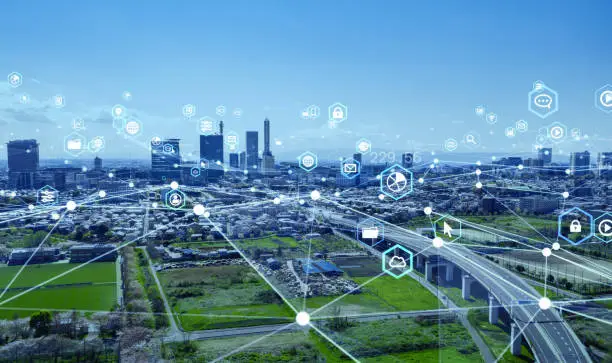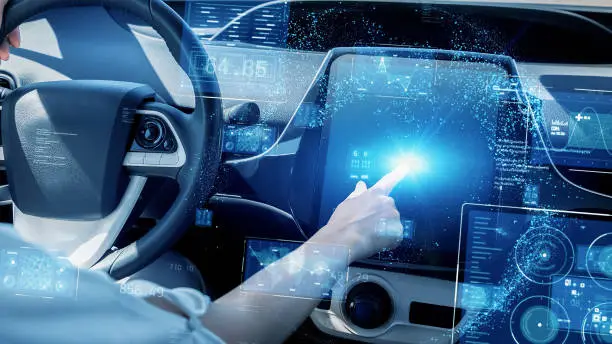Introduction
The concept of smart cities has evolved significantly over the past few decades, transforming urban landscapes and improving the quality of life for residents. As urbanization accelerates and cities face increasing pressure to accommodate growing populations, the need for smarter, more efficient urban solutions becomes paramount. These advancements are not just about incorporating the latest gadgets or software but about fundamentally rethinking how cities operate and serve their citizens.
The Birth of Smart Cities

Early Innovations
- Smart Infrastructure: The initial phase of smart cities focused on integrating technology into urban infrastructure, such as intelligent traffic management systems and automated public services.
- Data Utilization: Early smart city projects harnessed data to optimize city operations, enhancing efficiency and reducing costs.
Pilot Projects
- First Implementations: Cities like Barcelona and Amsterdam pioneered the first smart city projects, serving as models for future developments.
- Public-Private Partnerships: Collaboration between governments and private sector companies played a crucial role in the early stages of smart city initiatives.
Sustainable Urban Development

As the world grapples with the challenges of climate change and resource depletion, sustainable urban development has become a cornerstone of smart city initiatives.
Green Buildings
- Energy Efficiency: Smart cities emphasize the construction of energy-efficient buildings to reduce carbon footprints.
- Sustainable Materials: The use of sustainable materials in construction projects contributes to environmental conservation.
Renewable Energy
- Solar and Wind Power: Integration of renewable energy sources into the urban grid supports sustainability goals.
- Energy Storage: Advanced energy storage solutions ensure the reliability of renewable energy supplies.
Technological Advancements

The technological advancements driving the evolution of smart cities are at the heart of their development.
Internet of Things (IoT)
- Connected Devices: The proliferation of IoT devices enabled real-time data collection and analysis, revolutionizing urban management.
- Smart Utilities: IoT technology facilitated the development of smart grids, water management systems, and waste management solutions.
Artificial Intelligence (AI)
- Predictive Analytics: AI-powered analytics provided insights for predictive maintenance, crime prevention, and traffic optimization.
- Automation: AI-driven automation improved public services, such as healthcare, education, and emergency response.
Transportation and Mobility

Transportation and mobility are critical components of smart city initiatives. The integration of technology into transportation systems aims to create more efficient, sustainable, and user-friendly urban mobility solutions.
Intelligent Transportation Systems (ITS)
- Traffic Management: ITS solutions optimize traffic flow, reduce congestion, and enhance road safety.
- Public Transit: Smart public transit systems offer real-time information and efficient route planning.
Autonomous Vehicles
- Self-Driving Cars: The development of autonomous vehicles promises to revolutionize urban mobility.
- Regulatory Challenges: Implementing autonomous vehicles requires addressing regulatory and safety concerns.
Citizen-Centric Services

Citizen-centric services lie at the heart of smart cities, aiming to enhance the quality of life and improve the overall experience for residents.
E-Government
- Digital Services: Smart cities offer digital government services, enhancing accessibility and convenience for residents.
- Transparency: E-government initiatives promote transparency and accountability in public administration.
Smart Healthcare
- Telemedicine: Smart healthcare systems provide telemedicine services, improving access to medical care.
- Health Monitoring: Wearable devices and remote monitoring systems enhance health management and preventive care.
Future in Smart Cities

Emerging Technologies
- 5G Networks: The deployment of 5G networks will enable faster data transmission and support new smart city applications.
- Blockchain: Blockchain technology can enhance data security and transparency in smart city operations.
Global Collaboration
- International Partnerships: Global collaboration and knowledge sharing are essential for the continued evolution of smart cities.
- Standardization: Establishing international standards will ensure the interoperability and scalability of smart city solutions.
Conclusion
The evolution of smart cities represents a transformative journey towards more sustainable, efficient, and livable urban environments. As technology continues to advance, smart cities will play an increasingly critical role in addressing urban challenges and improving the quality of life for residents worldwide. By fostering innovation, collaboration, and sustainability, the future of smart cities looks promising and bright.
